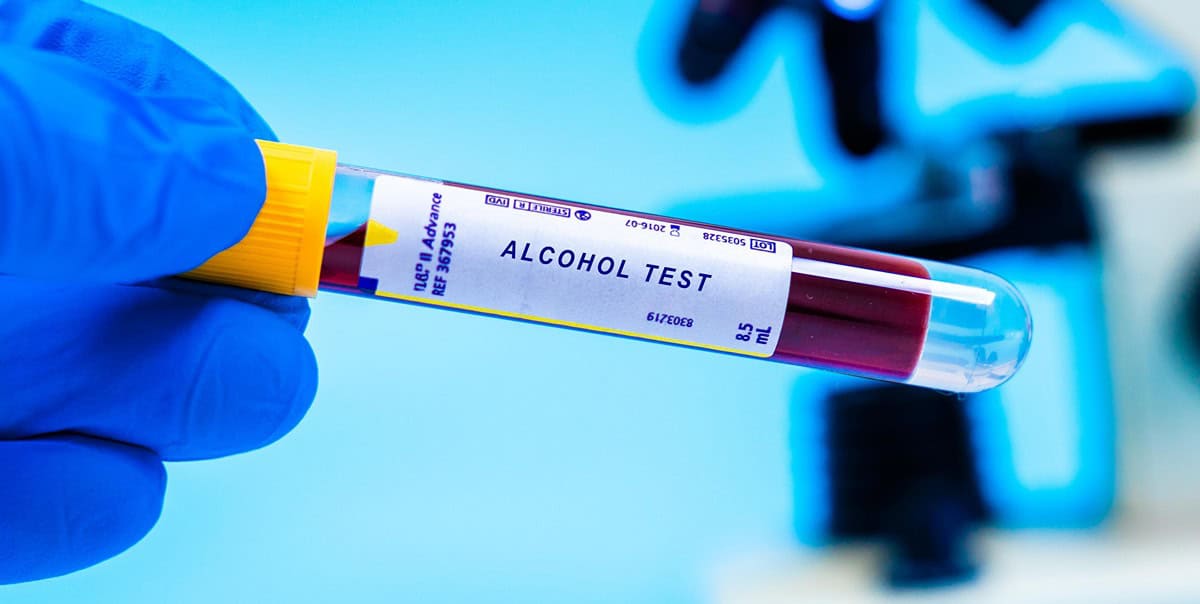The Horizontal Gaze Nystagmus (HGN) test is a common method police use to check if someone might be driving under the influence (DUI). This test involves watching how a person’s eyes move. Normally, if someone has had too much to drink or taken certain drugs, their eyes will jerk in a specific way.
Although the HGN test is widely used, it’s not always perfect. Sometimes, things like health issues or even how the test is done can affect the results.
This article will cover the following topics:
- Understanding the Three Standardized Field Sobriety Tests
- What is the Horizontal Gaze Nystagmus Test?
- Horizontal Gaze Nystagmus (HGN) Field Sobriety Test Scoring
- Maintaining Head Stillness in HGN Testing
- Why You Failed the Test
- Challenging the Validity of the HGN Test in DUI Cases
- How a DUI Defense Attorney Can Help with HGN Test Results

Understanding the Three Standardized Field Sobriety Tests
The three standardized field sobriety tests (SFSTs) are tools used by law enforcement officers to assess and determine the impairment of individuals suspected of driving under the influence (DUI). Developed by the National Highway Traffic Safety Administration (NHTSA), these tests are designed to provide an objective measure for identifying impairment due to alcohol or drugs.
- Horizontal Gaze Nystagmus (HGN) Test:
- The HGN test evaluates the involuntary jerking of the eyes (nystagmus) as they follow a moving stimulus, usually a pen or a small flashlight. Indicators of impairment include the inability of the eyes to follow the object smoothly, distinct jerking at maximum deviation, and the onset of jerking before the eye reaches a 45-degree angle.
- Walk-and-Turn Test:
- This test assesses the suspect’s ability to complete tasks requiring attention, balance, and coordination. The individual is instructed to take nine steps, heel-to-toe, along a straight line, then turn on one foot and return in the same manner. Indicators of impairment include an inability to maintain balance, starting before instructions are finished, stopping while walking, not touching heel-to-toe, stepping off the line, using arms to balance, making an improper turn, or taking an incorrect number of steps.
- One-Leg Stand Test:
- The one-leg stand test evaluates balance and concentration. The individual is asked to stand with one foot approximately six inches off the ground and count aloud until told to put the foot down. The officer times the subject for 30 seconds. Indicators of impairment include swaying while balancing, using arms to balance, hopping to maintain balance, or putting the foot down.
While these tests are standardized, factors such as individual physical differences, medical conditions, external environment, and the officer’s subjective interpretation can influence their outcomes.
It’s important to note that while these tests can suggest impairment, they are not definitive proof of DUI.
A DUI defense attorney can challenge the administration and results of these tests, offering a defense in cases where their accuracy and reliability are in question.
What is the Horizontal Gaze Nystagmus Test?
The Horizontal Gaze Nystagmus (HGN) Test is a scientifically based field sobriety test commonly used by law enforcement across the United States to aid in the detection of impairment due to alcohol or other substances.
This test focuses on observing the involuntary jerking of the eyes (nystagmus) as they follow a moving object, typically a pen or a small flashlight, held by the officer.
- Physiological Basis: Nystagmus is a natural, involuntary movement of the eye that can become pronounced with neural impairment, often due to alcohol intoxication. The central nervous system (CNS) is affected by high levels of alcohol, which can hinder the brain’s ability to properly control eye muscles, resulting in exaggerated jerking or bouncing of the eye.
- Test Administration: During the HGN test, an officer will ask the individual to follow the motion of a stimulus with their eyes only. As the eyes move side to side, the officer looks for three specific indicators of impairment in each eye:
- Lack of Smooth Pursuit: The eyes can’t follow a moving object smoothly.
- Distinct Nystagmus at Maximum Deviation: When the eye is looking as far to the side as possible, pronounced jerking is noticeable.
- Onset of Nystagmus before 45 Degrees: The eye begins to jerk before it has moved 45 degrees to the side.
- Legal Relevance in Arizona: Under the Arizona Revised Statute §28-1321, the HGN test is one component of the field sobriety tests that officers may administer to assess impairment. The test’s results can be used to establish probable cause for a DUI arrest.
- Training and Standardization: The National Highway Traffic Safety Administration (NHTSA) has standardized the HGN test, providing specific guidelines for its administration and interpretation. However, the accuracy of the test is highly dependent on the officer’s adherence to these guidelines and their training.

Horizontal Gaze Nystagmus (HGN) Field Sobriety Test Scoring
The scoring of the Horizontal Gaze Nystagmus (HGN) test in DUI assessments is based on the observation of three main indicators in each eye, making up a total of six possible cues for impairment:
- Lack of Smooth Pursuit: If the eye cannot smoothly follow a moving object and exhibits jerky movements, it counts as a cue.
- Distinct Nystagmus at Maximum Deviation: Marked jerking of the eye when it is looking to the far side is another indicator.
- Onset of Nystagmus Prior to 45 Degrees: If the eye begins to jerk before it reaches a 45-degree angle as it follows the object, it’s considered a sign of impairment.
Each eye is tested for all three indicators, accounting for six cues in total. A score of four or more cues generally suggests a high likelihood of impairment.
Maintaining Head Stillness in HGN Testing
Keeping your head still is important when taking the HGN test. This test involves following an object with your eyes while keeping your head motionless.
Moving your head can cause your eyes to jerk in a way that might wrongly suggest you’re under the influence of alcohol or drugs.
Officers should tell you clearly to keep your head still. If they don’t, or if something else makes it hard for you to keep your head still, this could be used in your defense if you’re charged with DUI.

Why You Failed the Test
It’s important to understand that not all failures of the HGN test are due to alcohol or drug impairment. Several factors can affect the outcome of the test, leading to false positives or misinterpretations.
Let’s explore why you might have failed the HGN test, even if you were not under the influence:
- Inherent Eye Conditions: Certain medical conditions, such as inner ear disorders, various brain disorders, or vision problems, can cause nystagmus independently of alcohol consumption. These conditions might lead to failing the HGN test even in a sober state.
- Improper Test Administration: The accuracy of the HGN test heavily relies on the administration by the officer. Incorrect instructions or improper handling of the stimulus can lead to misleading results. Factors such as not holding the stimulus at the proper distance or moving it too quickly or slowly can significantly impact the test’s outcome.
- Environmental Influences: The test environment can significantly affect the results. Flashing lights, passing vehicles, or even windy conditions can cause distractions or eye irritations, leading to eye movements that may be mistaken for nystagmus.
- Fatigue and Stress: Being pulled over and subjected to a field sobriety test can be a stressful experience. Fatigue or anxiety can cause natural eye twitching or jerking, which might be misconstrued as signs of impairment during the HGN test.
- Medications or Other Substances: Certain prescription medications, over-the-counter drugs, or even caffeine can influence eye movement and potentially lead to a failed HGN test.
Nystagmus can be caused by various factors unrelated to substance use, including certain medical conditions, natural eye movements, or even external environmental influences.
While nystagmus may be more pronounced in cases of intoxication, relying solely on this sign without considering other contributing factors can lead to inaccurate conclusions about an individual’s level of impairment.
Challenging the Validity of the HGN Test in DUI Cases
When faced with DUI charges based on the results of the Horizontal Gaze Nystagmus (HGN) test, numerous defense strategies can be employed to challenge the test’s validity and the interpretation of its results.
- Improper Test Administration: Argue that the officer did not follow the standardized procedures for administering the HGN test. Factors such as the speed of the moving object, the distance from the subject’s face, and the duration of each part of the test can significantly affect the results.
- Officer’s Qualification and Training: Emphasize any lack of proper training or certification of the officer in conducting the HGN test. Proper administration requires specific training, and any deviation could undermine the test’s credibility.
- Subject’s Medical Conditions: Highlight any medical conditions or eye issues of the accused that could naturally cause nystagmus or affect the test results, such as inner ear problems, brain injuries, or vision problems.
- Environmental Factors: Point out any environmental factors present during the test that could have influenced the results. This includes road conditions, weather, lighting, and even the presence of flashing police lights, which can cause eye movements that mimic nystagmus.
- Lack of Scientific Consensus: Present arguments regarding the lack of unanimous scientific consensus on the HGN test as a definitive indicator of impairment due to alcohol or drugs.
By analyzing and challenging the circumstances surrounding the HGN test, a skilled DUI defense attorney can cast doubt on the reliability of the test results and advocate for a fair consideration of the accused’s situation.
How a DUI Defense Attorney Can Help

Need help with a DUI case? Contact Arja Shah Law at (602) 560-7408, they’re ready to defend your rights and guide you through the process.











